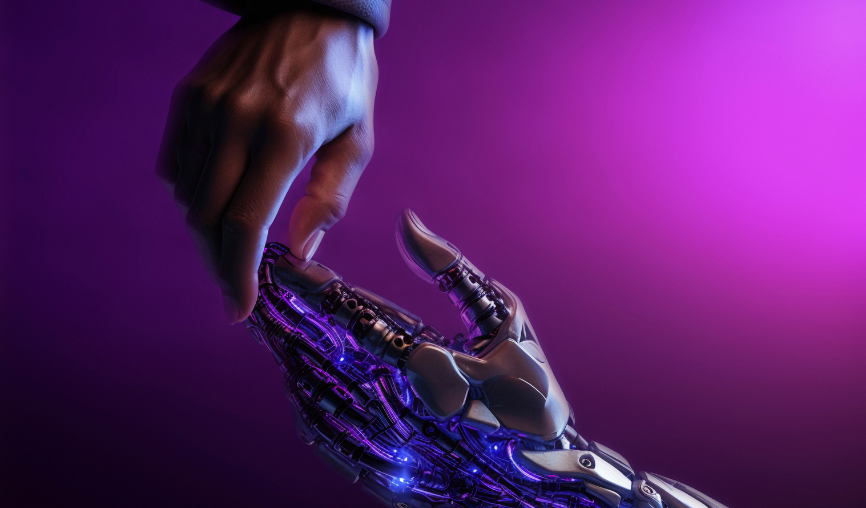
Generative AI in Software Development: A Revolution in the Making
The software development landscape is constantly evolving. New technologies emerge, methodologies shift, and developers strive to stay ahead of the curve. One of the most exciting advancements on the horizon is generative AI, and its potential to transform how we build software is nothing short of revolutionary.
What is Generative AI?
Generative AI refers to a subfield of artificial intelligence focused on creating new content, like text, code, images, or even music. Unlike traditional AI models trained for recognition or classification, generative AI learns the underlying patterns and structures of data and uses that knowledge to generate entirely new and original creations.
How Can Generative AI Be Used in Software Development?
The applications of generative AI in software development are vast and ever-expanding. Here are some of the most promising areas:
- Code Generation: Imagine an AI assistant that can translate natural language descriptions into functional code snippets or even complete modules. Generative AI can automate repetitive coding tasks, freeing developers to focus on complex problem-solving and innovation.
- Improved Design and Architecture: Generative AI can analyze existing codebases and user data to suggest optimal system architectures and user interface designs. This can lead to more efficient, user-friendly, and maintainable software.
- Automated Testing: Generating comprehensive test cases is a time-consuming but crucial aspect of software development. Generative AI can create diverse and robust test scenarios, ensuring thorough software validation.
- Smarter Documentation: Documentation often lags behind code development. Generative AI can automatically generate API documentation, user manuals, and release notes based on the code itself, saving developers time and ensuring consistent documentation.
- Data Augmentation: Many AI models require vast amounts of training data. Generative AI can be used to create synthetic data that mirrors real-world conditions, improving the performance and generalizability of machine learning models integrated into software.
Beyond Code: A Holistic Approach
The impact of generative AI extends far beyond just writing code. It can streamline various stages of the software development lifecycle (SDLC):
- Requirements Gathering: AI can analyze user feedback and business needs to generate more concise and actionable user stories.
- Agile Development: Generative AI can suggest potential solutions and code prototypes during sprint planning, accelerating the iterative development process.
- Maintenance and Refactoring: AI can identify code smells and potential bugs, suggesting refactoring strategies to improve code quality and maintainability.
The Benefits of Generative AI for Developers
- Increased Productivity: By automating repetitive tasks, generative AI frees developers to focus on higher-level problems and innovation.
- Improved Code Quality: Generative AI can help developers write cleaner, more efficient code with fewer bugs.
- Reduced Development Time: Automating tasks and generating code snippets can significantly accelerate the software development process.
- Lower Development Costs: Increased efficiency and reduced development time translate to lower overall project costs.
- Democratization of Development: Generative AI can assist less experienced developers by providing code suggestions and best practices, lowering the barriers to entry for complex projects.
Challenges and Considerations
While generative AI offers a plethora of benefits, there are still challenges to consider:
- Explainability and Trust: Understanding how generative AI models arrive at their outputs is crucial. Developers need to trust the generated code and have a clear understanding of its functionality.
- Data Bias: Generative AI models are only as good as the data they’re trained on. Biases in training data can lead to biased outputs. Careful data selection and curation are essential.
- Security Concerns: Malicious actors could potentially exploit generative AI to create malicious code. Robust security measures are necessary.
- The Human Factor: Generative AI should be seen as a powerful tool, not a replacement for human developers. Creativity, problem-solving skills, and critical thinking will remain vital.
Also ReadHow AI is Reshaping Search Engine Optimization?
The Future of Generative AI in Software Development
The future of software development is undoubtedly intertwined with generative AI. As the technology matures and becomes more accessible, we can expect even more innovative applications to emerge. Generative AI has the potential to revolutionize the way software is built, leading to faster development cycles, higher quality software, and a more productive and efficient development landscape.
Ready to Embrace the Generative AI Revolution?
Generative AI is no longer science fiction. It’s a powerful tool that’s here to stay. By understanding its capabilities and limitations, software developers can leverage generative AI to become more productive, efficient, and innovative.
Leave A Comment
Search
Recent Post

Top 8 Technology Trends to Drive Growth in 2024
16 April. 2024

Reports on Autopilot: Can GA4 Really Be This Easy?
5 March. 2024

Web3 and the Metaverse: A New Era for the Internet?
27 February. 2024
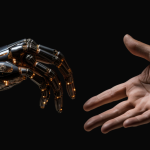
How AI is Reshaping Search Engine Optimization?
22 February. 2024

Is GEMINI the Next Game-Changer for Your Business?
20 February. 2024

5 Digital Marketing Trends You Need to Know in 2024
16 February. 2024

Is Your Website Talking Back? Dominate Voice Search with These 3 Hacks!
13 February. 2024

Unexpected Ways Apple Vision Pro Will Change India: Beyond the Hype
8 February. 2024

How UX Design Can Satisfy Users and Business Goals ?







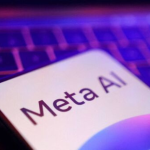


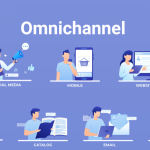



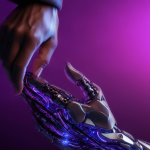








1 Comment
Scope of eCommerce and the Future of Online Shopping in India (2024)
April 3, 2024
[…] Artificial intelligence (AI) is poised to revolutionize e-commerce in India. Imagine receiving personalized product recommendations based on your browsing history and past purchases. Or chatbots that answer your queries in real-time, providing exceptional customer service. AI will personalize the shopping experience, making it more efficient and enjoyable. […]